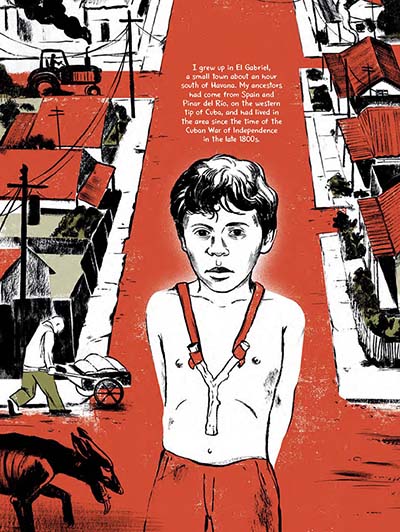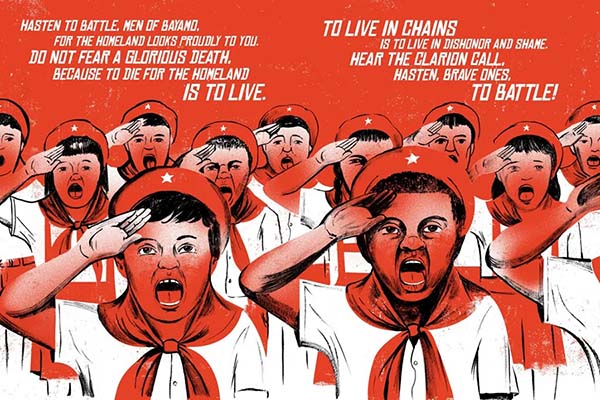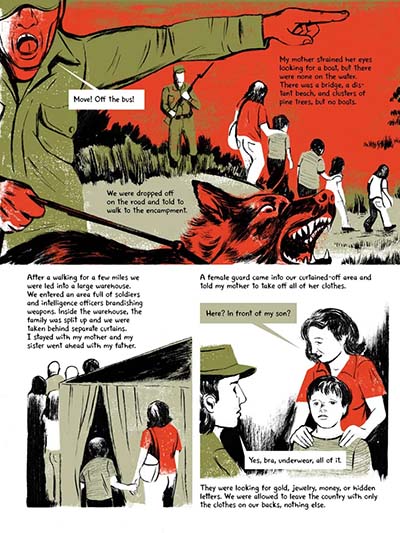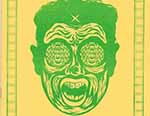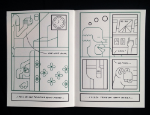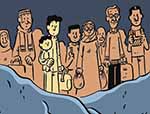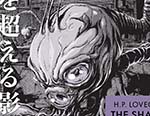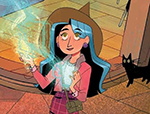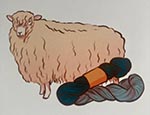In recent years the unforgettable artwork of Cuban American illustrator Edel Rodriguez has adorned the covers of magazines like Time and Der Spiegel, skewering the unceasing excesses of the Trump administration with striking symbolism. As a social commentator Rodriguez is best known for his single, piercing images but at the end of last year his graphic memoir Worm: A Cuban American Odyssey saw him expand that vision to sequential art. The result is a graphic memoir that proves to be one of the most immersive examples of autobiographical comics in recent memory, and a truly outstanding achievement.
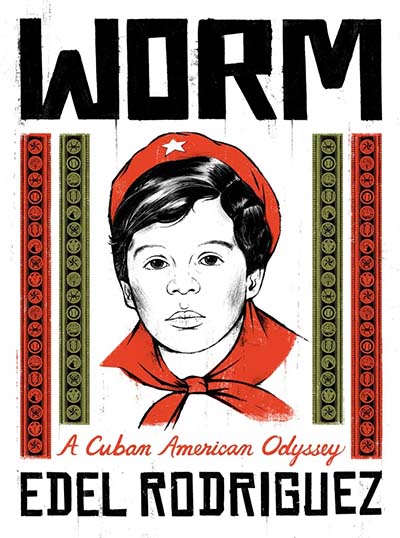
Worm (the title denotes the denigrating term used by Fidel Castro to describe those who sought to leave Cuba circa 1980) comprises four main sections. In its opening chapters we follow the story of the young Edel growing up in Cuba in the 1970s, observing the realities of life in communist Cuba after the insurrection; a totalitarian society where life is lived under the threat of constant suspicion and where his rule-breaking father continually chances his luck in his bid to look after his family.
It’s this oppressive environment that leads to the family’s decision to leave Cuba when the opportunity arises which leads into the second instalment of sorts in Worm. Here Rodriguez portrays the brutal experiences of fleeing Cubans being interned in camps leading up to their departures, and the abuses they suffered at the hands of the authorities prior to the boatlift escape of 1980.
From there we are taken to their initial years adjusting to relocation in the United States and, finally, to Rodriguez’s eventual career as an illustrator/cartoonist. It’s in this final quarter of the book that his notoriously effective interpretation of Donald Trump – a largely featureless orange outline with simply an angry mouth to denote his ranting bigotry – gets much page space, as Rodriguez not only explores this period of his life but also examines how Trump and the Republican party’s insidious actions chipped away at the fundamental foundations of US democracy.
At nearly 300 pages Worm is a comprehensive piece of memoir with a wide-ranging remit. It gives us a child’s eye view of living under a dictatorship while making parallels between that period of Rodriguez’s life and the sinister state of US politics in recent years. And while the events it covers in its middle section are four-plus decades ago they are still, obviously, incredibly relevant in our contemporary timeframe, given that refugees are regularly demonised by both politicians and the media.
Rodriguez ensures Worm is such a compelling read by making us invested in the family’s lives from the very outset. This is achieved by threading smaller, anecdotal, personal stories throughout the wider “big picture” narrative, connecting us intimately to the characters and their experiences. The limited colour palette of subdued reds and greens ensures that the emotional beats of key sequences really stand out, There are occasional segments where text threatens to swamp illustration – to the point that sequential art comes close to becoming illustrated prose – but Rodriguez is such an evocative writer that this never feels intrusive.
There’s a feeling of the story coming full circle in its final pages as Worm’s thematic and tonal qualities converge. A pull quote from Chip Kidd on the back cover of Worm includes the sentence “This book is so good it will likely be banned in Florida.” That is both an immense testimony to its message and a damning indictment of a world that makes Worm such a vitally important story.
Edel Rodriguez (W/A) • Weidenfeld & Nicolson/Metropolitan Books, £20.00
Review by Andy Oliver






